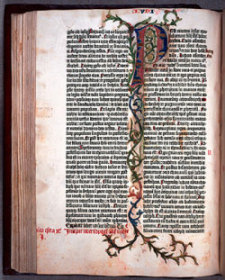"Hear, O King" -- Judges 5:1-31
 Wednesday, January 28, 2009 at 01:55PM
Wednesday, January 28, 2009 at 01:55PM  The Eighth in a Series of Sermons on the Book of Judges
The Eighth in a Series of Sermons on the Book of Judges
Wherever the people of God witness his mighty power, their hearts are inevitably stirred to sing God’s praises. A number of “songs” composed by the key participants at critical moments in redemptive history are found throughout Scripture in the form of inspired verse. Whenever these “songs” are found in Scripture, it is important to notice that these songs recount the great things God has done for his people. The songs are composed as a form of praise, and they serve as a means of stirring faith in the hearts of his people throughout the subsequent generations. In other words, these songs teach God’s people about God’s faithfulness. In them, we see the heart of God’s people at a given moment in redemptive history, as they give God praise because he has rescued from captivity and/or a crisis. At the same time, the people of God are offering up a song which, in turn, becomes a kind of prayer, as God’s people are seeking his continued deliverance from their enemies. Therefore, these songs tell us a great deal about how God is to be worshiped and they remind us that God is greater than all our enemies–even sin and death. Although God may allow us to be chastened by our foes, he will indeed redeem his people in the end.
We are continuing our series on Judges and we now come to the Song of Deborah and Barak, which is recorded in Judges chapter 5. Before we proceed to work our way the details of the song, we need to consider two things which will help us understand the details of this particular song. First, while this song is unique in the Book of Judges, such a “song” is not unique in the Old Testament. There are the famous Songs of Moses found in Exodus 15 and Deuteronomy 32. There is the Song of Jonah (in Jonah 2) and the song of Hezekiah’s Son from Isaiah 38. No doubt, the song of Deborah and Barak is ancient. It comes from the time of Deborah, more than a century after the time of Joshua and the Conquest. This song was widely known throughout Israel and it was eventually incorporated into the Book of Judges by the unknown author. That leads to a second important point.
You cannot understand the Song of Deborah and Barak without some knowledge of the events recorded in the previous section of Judges (3:31-4:24). This particular song was composed during that period in Israel’s history when God raised up Deborah as a prophetess, and to serve as “judge” (or deliverer) in Israel when Israel was chastened by God for the fourth time through a neighboring enemy. As we saw last time, it was during the era of Deborah that God revealed his plan to deliver Israel through her, because Israel’s priests (the Levities) had become faithless and had failed to instruct the people of Israel in the ways of the Lord. By speaking through Deborah, God is, in effect, shaming the Levites, and providing his people with the good news of future deliverance from their current oppressor–the king of the Canaanites, Jabin.
To read the rest of this sermon click here


Reader Comments